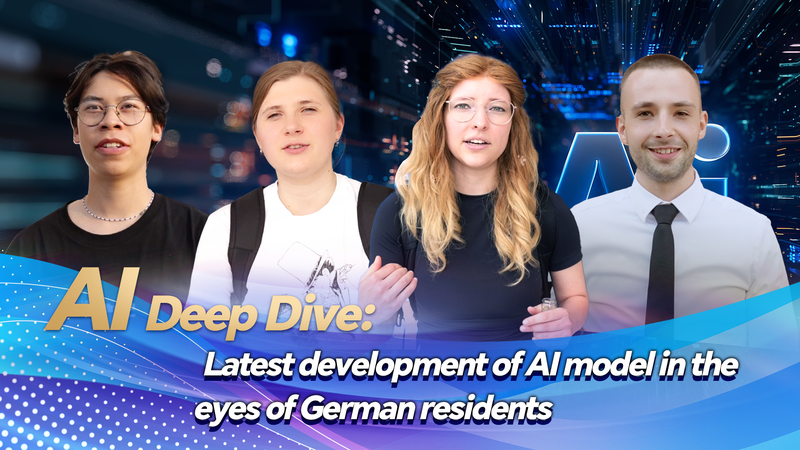On August 7, OpenAI released GPT-5, marking a major leap in its flagship ChatGPT line. This launch comes as nations intensify their global race for advanced artificial intelligence, with AI tools increasingly woven into daily routines.
Public opinion in Germany remains split. For many, GPT-5 is a productivity powerhouse that simplifies research, sparks creativity and helps explore unfamiliar topics. Others worry about potential job displacement, misinformation and the broader ethical implications of handing more decisions to machines.
CGTN Stringer hit the streets of Cologne – a city known for tech innovation and cautious regulation – to capture local perspectives. Some residents praised the tool’s ability to streamline tasks, while others raised concerns about data privacy and algorithmic bias.
One Cologne resident summed it up neatly: "AI can do both good and harmful things. It will help us to be informed about the decisions we are making." As AI adoption expands, balancing its promise with privacy and ethical safeguards remains at the heart of the debate.
Reference(s):
German residents share their thoughts on latest developments in AI
cgtn.com




